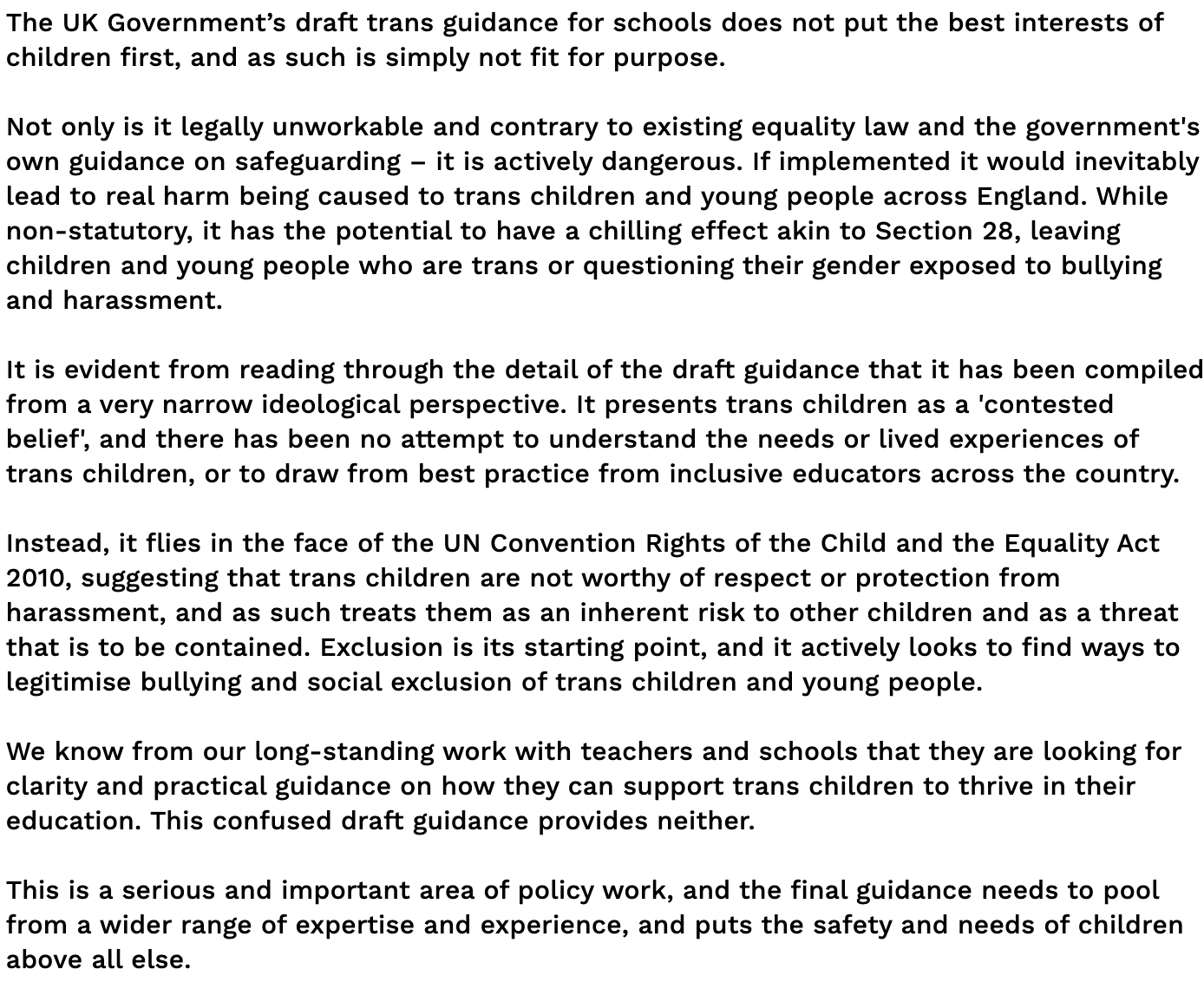This is the one step back after five leaps forward again.
We’re seeing this with immigration, we’re seeing it with the social stuff.
It’s all based on AI behavioral models.
Teachers should consider if students wanting to socially transition to another gender were “influenced by social media or peers”, under new government guidelines for how schools and colleges in England deal with transgender children and young people.
The draft guidance issued by the education secretary, Gillian Keegan, and the equalities minister, Kemi Badenoch, advises there is “no general duty” for schools and colleges to let students change their preferred names, pronouns or uniforms – known as social transitioning – and stresses that parents should be involved in any decisions except where it would endanger the child.
Who decides this?
How do they decide it?
When you do not have a religion, or some state ideology that place-holds for a religion (communism), then how does anyone decide anything?
Without some kind of guiding thought, everything is in a vacuum.
The guidance requires schools to maintain separate toilets and changing facilities for each sex after age eight, allows staff and students to ignore pronouns preferred by socially transitioning children, and for sport and PE activities to be segregated by sex if there are safety concerns.
“Schools and colleges should seek to understand societal or other factors that may have influenced the child, for example: has the child been influenced by peers or social media? Does the child feel pressured to identify differently because they simply do not align with stereotypes associated with their sex?” the guidance states.
The guidance is the first of its type to be issued to schools in England, and has been the subject of much controversy among ministers and MPs since it was proposed by Rishi Sunak earlier this year.
The prime minister’s official spokesperson said schools “will be held to account” under the new guidance.
“This is what [teachers] have been asking for, and what we have provided is clarity on how to approach a very sensitive and complex area. Crucially, it’s clear that parents must always be involved in the decisions that affect their children’s lives. And it gives clarity and protection to teachers so they have confidence.”
The heads of three major children’s charities – Barnardo’s, NSPCC and Children’s Society – said the welfare of individual children should be the guidance’s primary consideration.
“We understand there has been no engagement with children and young people themselves in the development of this guidance so far. It is vital their voices are heard during the consultation period,” the joint statement said.
“We will be engaging with government to urge them to make sure children’s best interests and, in particular, those of individual children questioning their gender identity, are protected under the final version of this guidance.”
Groups supporting the right of children to transition in education criticised the draft guidance as dangerous and unworkable.
Stonewall, the LBGT+ charity, compared the guidance to the “chilling effect” caused by the 1988 section 28 regulation that banned schools discussing homosexuality.
“Not only is it legally unworkable and contrary to existing equality law and the government’s own guidance on safeguarding, it is actively dangerous. If implemented it would inevitably lead to real harm being caused to trans children and young people across England,” a spokesperson for Stonewall said.

The full statement from those pedophile psychos at Stonewall
But Maya Forstater, the executive director of the campaigning group Sex Matters, said: “The most important takeaway is that the normalisation of so-called social transition – lying about children’s sex – is indefensible within a school environment.
“We are grateful that the government has listened to experts and prioritised the wellbeing and safeguarding of children in this guidance, rather than pandering to ideological, anti-scientific dogma.”
The draft publication also divided its supporters. Some, including the former prime minister Liz Truss, said new legislation would be required.
“I fear that activists and others will be able to exploit loopholes in the guidance and the existing legal framework to pursue their agenda,” she said.
The former home secretary Suella Braverman said it was a “serious weakness” that the guidance still allowed social transitioning in schools.
“Too much discretion is left to individual schools and teachers … Ultimately if the law needs to be changed, then ministers must be prepared to act,” she said.
I’m not hopeful.
This is a response to backlash, therefore damage control, and damage control by nature has a limited scope.
